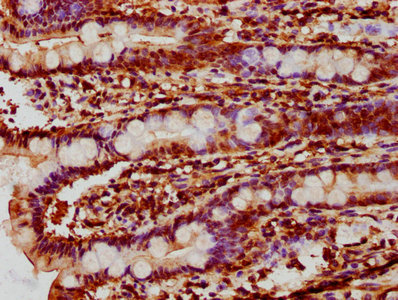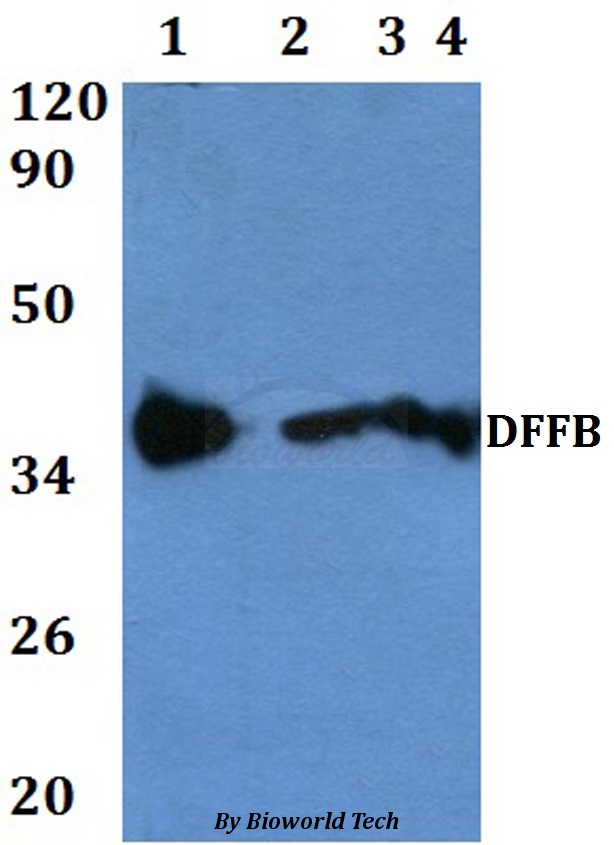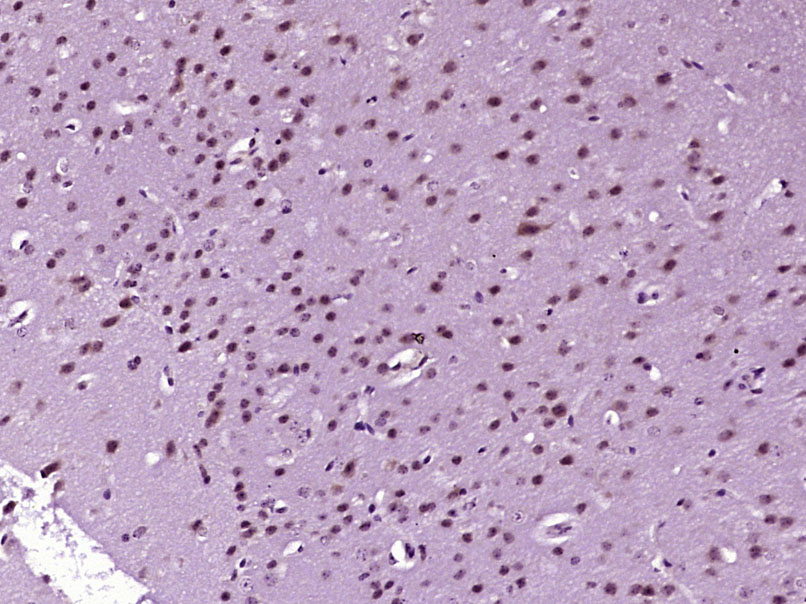![WB analysis of HeLa cell lysate using GTX13592 CAD antibody [36A349]. Loading : 30μg WB analysis of HeLa cell lysate using GTX13592 CAD antibody [36A349]. Loading : 30μg](https://www.genetex.com/upload/website/prouct_img/normal/GTX13592/GTX13592_956_WB_w_23060620_704.webp)
WB analysis of HeLa cell lysate using GTX13592 CAD antibody [36A349]. Loading : 30μg
DFFB antibody [36A349]
GTX13592
ApplicationsWestern Blot
Product group Antibodies
ReactivityHuman
TargetDFFB
Overview
- SupplierGeneTex
- Product NameDFFB antibody [36A349]
- Delivery Days Customer9
- Application Supplier NoteWB: 1:100 - 1:2000. *Optimal dilutions/concentrations should be determined by the researcher.Not tested in other applications.
- ApplicationsWestern Blot
- CertificationResearch Use Only
- ClonalityMonoclonal
- Clone ID36A349
- Concentration0.5 mg/ml
- ConjugateUnconjugated
- Gene ID1677
- Target nameDFFB
- Target descriptionDNA fragmentation factor subunit beta
- Target synonymsCAD, CPAN, DFF-40, DFF2, DFF40, DNA fragmentation factor subunit beta, DNA fragmentation factor 40 kDa subunit, DNA fragmentation factor, 40kDa, beta polypeptide (caspase-activated DNase), caspase-activated DNase, caspase-activated deoxyribonuclease, caspase-activated nuclease
- HostMouse
- IsotypeIgG1
- Protein IDO76075
- Protein NameDNA fragmentation factor subunit beta
- Scientific DescriptionApoptosis is a cell death process that removes toxic and/or useless cells during mammalian development. The apoptotic process is accompanied by shrinkage and fragmentation of the cells and nuclei and degradation of the chromosomal DNA into nucleosomal units. DNA fragmentation factor (DFF) is a heterodimeric protein of 40-kD (DFFB) and 45-kD (DFFA) subunits. DFFA is the substrate for caspase-3 and triggers DNA fragmentation during apoptosis. DFF becomes activated when DFFA is cleaved by caspase-3. The cleaved fragments of DFFA dissociate from DFFB, the active component of DFF. DFFB has been found to trigger both DNA fragmentation and chromatin condensation during apoptosis. Alternatively spliced transcript variants encoding distinct isoforms have been found for this gene but the biological validity of these variants has not been determined. [provided by RefSeq]
- ReactivityHuman
- Storage Instruction-20°C or -80°C,2°C to 8°C
- UNSPSC41116161







